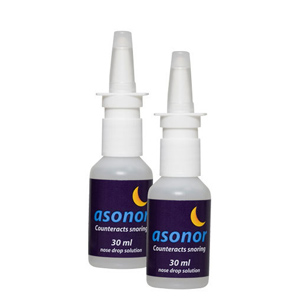Pregnancy brings a whole range of changes to your body, and not just a growing belly. The many physiological shifts which come with pregnancy are unique, with pregnant women experiencing sudden and dramatic surges in a range of hormones such as estrogen and progesterone.
One of the lesser known side effects of this is an increased likelihood of snoring, a noise caused by vibrating soft tissue in your throat during sleep.
According to a survey conducted by the American Thoratic Society, around half of all mums-to-be snore regularly at some point during their pregnancy. Around one in ten pregnant women snore during their first trimester, rising to 50% by the final trimester.
Research has also found that propensity for snoring during pregnancy can vary with ethnicity and socioeconomic status. African American women have an increased risk of sleep issues while pregnant, while it has been shown that living in impoverished communities can affect the quality of sleep, and thus lead to more snoring.
Why Do Pregnant Women Snore?
1. Hormones: The main cause of snoring during pregnancy is surging hormone levels, particularly estrogen and progesterone. This plays a vital role in helping the uterus to grow, and aiding the development of new blood vessels which transfer nutrients to the developing baby. But elevated estrogen and progesterone also dilate the blood vessels in the nose, causing mucous membranes to swell and increasing congestion which worsens when lying down. This forces many pregnant women to breathe through their mouth during sleep, causing greater vibrations of the soft tissue in the throat.
2. Weight gain: The majority of pregnant women gain somewhere between 10-12.5 kilograms, with most of the surplus weight occurring after week 20. This is natural and due to both the growing baby, and the body storing fat in preparation for making breast milk once the baby is born. However, this can lead to extra tissue in the neck and throat, particularly if the weight gain is excessive, which puts pressure on the muscles which keep your airway open at night. This restricts your ability to breathe freely, and can exacerbate snoring.
3. Dry air: Because the nasal passages are already particularly sensitive during the course of pregnancy, due to the effects of estrogen and progesterone, all mums-to-be are especially sensitive to overly dry or excessively humid air which can further aggravate the tissues of the nose and throat. For pregnant women who are already snoring, poor air quality in the bedroom can worsen sleep quality and make the issue worse.
4. Lack of quality sleep: Sleep is vital for pregnant women to allow the body to rest and recover as it attempts to grow and nurture a completely new human being. But this is often tricky due to practical challenges such as difficulty getting comfortable at night, early pregnancy insomnia, and the increased need to urinate in the night. As a result, studies have found that 76% of expectant mothers experience and daytime sleepiness. This can lead to more snoring because when the body is sleep deprived, the muscles in the throat lose their tone, causing them to vibrate more during sleep.
5: You have always snored: If you were already prone to snoring before becoming pregnant, it is going to become even more likely with the myriad of changes taking place in your body and the additional factors which can have an impact on your sleep.
Can Snoring Have Health Risks For You And Your Baby?
It is important to remember that some degree of snoring is completely natural during pregnancy. It only becomes a potential problem if it becomes chronic – meaning it is excessively regular or loud – as this can indicate breathing problems during sleep which could potentially affect the oxygen supply to the baby.
In particular, pregnant women are at a greater risk of obstructive sleep apnea, a condition where the upper airway becomes partially blocked or collapses completely during the night, causing you to temporarily stop breathing. This can happen dozens or even hundreds of times during the night, and tends to be preceded or followed by very loud snoring and even choking, followed by unusual fatigue or grogginess the next day.
By the third trimester, around 26% of pregnant women are thought to experience sleep apnea, and the risk is heightened for women who were already prone to snoring. It has been associated with a range of health conditions, such as high blood pressure or preeclampsia, which comes with symptoms such as headache, protein in the urine and blurred vision. Chronic snoring or sleep apnea are also thought to be associated with a higher risk of gestational diabetes and even perinatal depression. Research has shown that sleep apnea leads to excessive stimulation of brain chemicals called neurotransmitters during the night, which are then depleted during the day, causing the person to feel listless and lacking energy or motivation.
Other signs of sleep apnea can be a dry throat, morning headaches, instances of the heart racing at night, and teeth grinding. Anyone who thinks that they or their partner is experiencing sleep apnea during pregnancy, they should consult a healthcare professional.
How Can You Stop Snoring?
Side sleeping is the recommended position for pregnant women. Sleeping while lying on your back is known to increase the risk of snoring and even sleep apnea because the jaw retracts which narrows the airway.
Nasal sprays such as the Asonor Anti-snoring Solution can also make a difference through clearing mucus, helping to relieve congestion and widen the nasal passages, making it easier to breathe through the nose during sleep.
Steering clear of irritants such as smoke can also help, as well as running a humidifier in the bedroom to try and add some moisture to the air, can help with sleep quality.
Finally, using some pillows to prop your head up can also help clear the airways and make snoring less likely.







